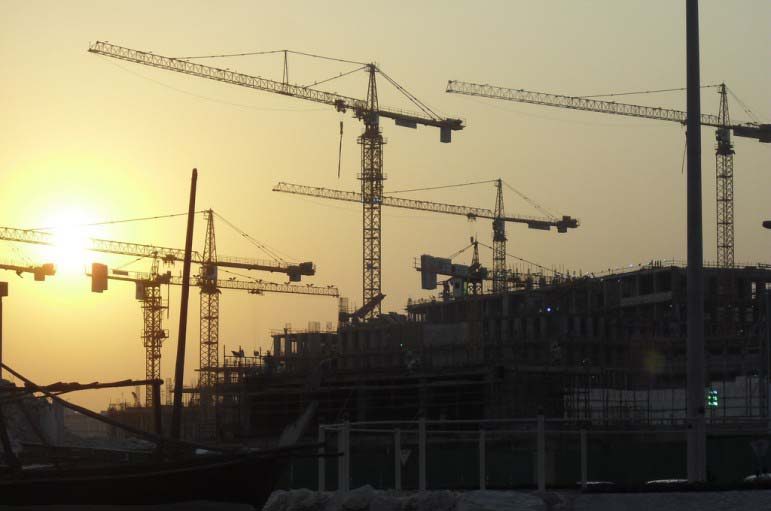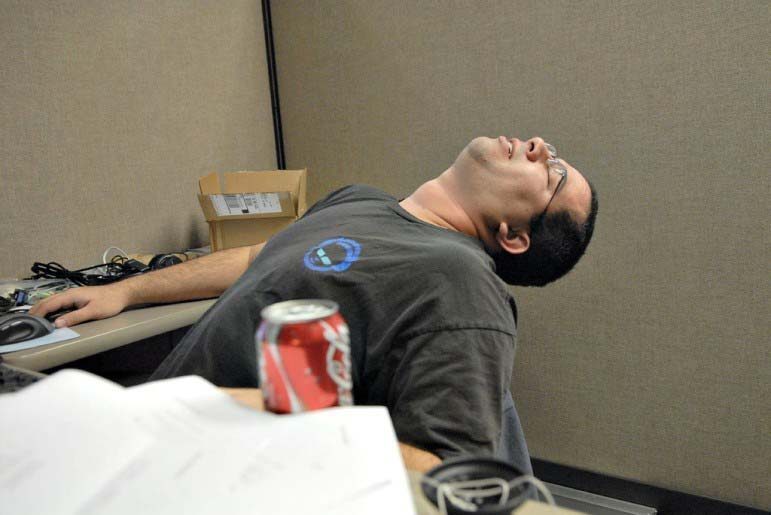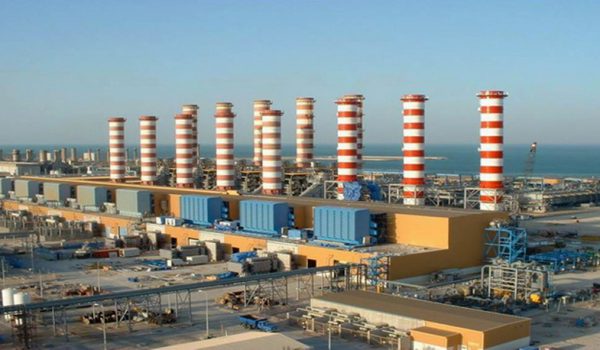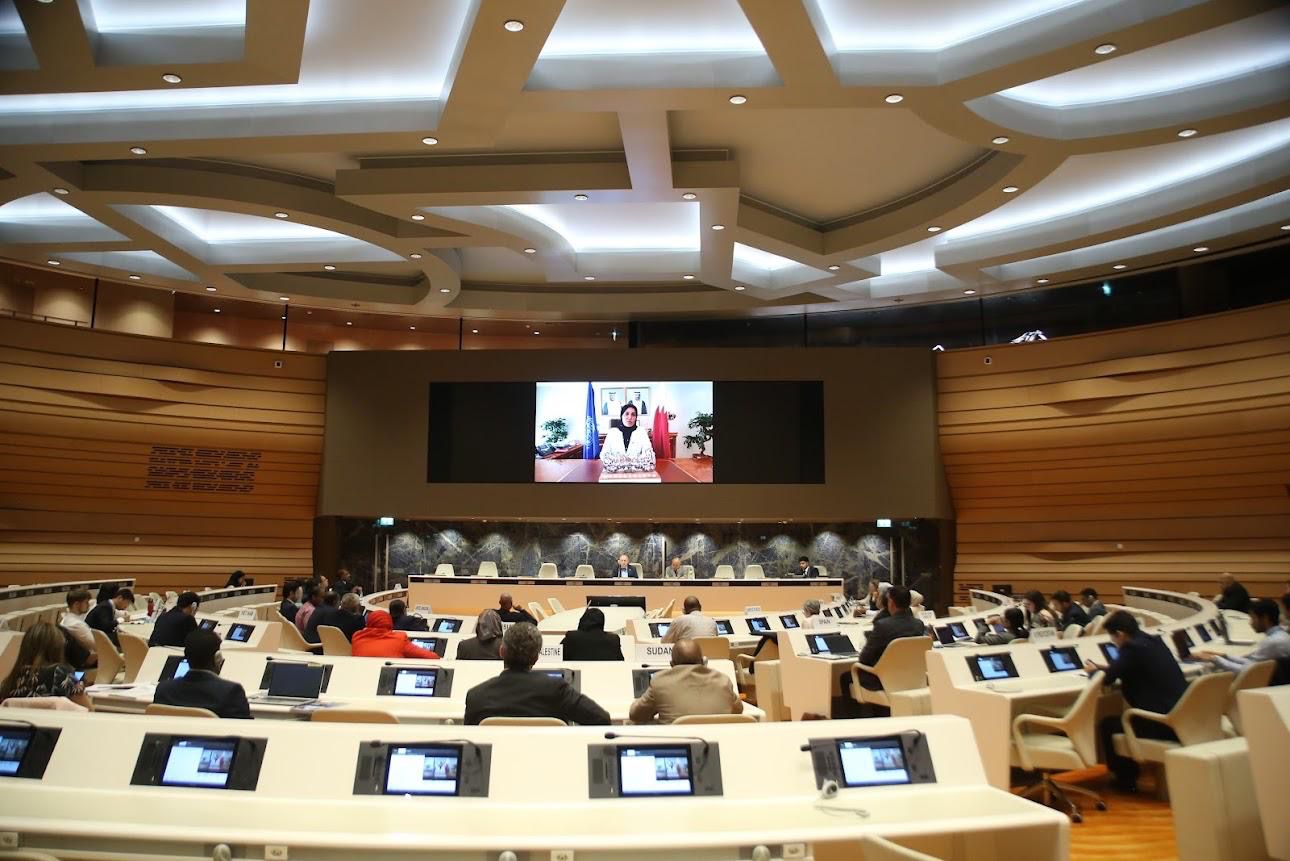
As Qatar speeds up construction ahead of the 2022 World Cup, rushing to build new roads, homes, a public transportation system and stadiums, many residents have complained that “constant pounding and drilling” is keeping them up at night.
Compounding the problem appears to be a lack of clear laws or guidelines regulating working hours on construction sites in residential areas in Qatar. There also appear to be no set penalties for violators.

Last week, Marwa Bannani, a stay-at-home mom, said she moved out of her new rented home in Musheireb after only one day, because she could not stand the loud noise and dust emanating from the construction site next door.
According to Bannani, the company worked every night from 10pm until dawn, as well as in the mornings.
“Me and my son couldn’t sleep at all,” she told Doha News.
She added that she has temporarily moved into her sister-in-law’s home until she finds a more suitable and quiet apartment.
Stuck
Not all residents are so lucky. Many say moving isn’t an option, as they don’t have family members in Qatar to take them in, and finding a suitable, affordable apartment here is not an easy task.
Speaking to Doha News, English teacher Zamzam Ghassan said that around a year ago, she contemplated moving several times from her apartment in Al Sadd, when the villa next door was demolished and construction workers started drilling and digging to lay down foundation for a new building.
She continued:
“It was utterly difficult with a child in school, who needs enough sleep, a newborn baby and a working husband, none of us could sleep well due to the noise. It felt as if we were sleeping in the middle of the actual construction site, not in our flat.”

When Ghassan’s husband eventually complained to onsite staff one night, he was told that they were officially authorized to work during such late hours.
“We wouldn’t have minded if they had worked in the evening, due to the heat during the day, but (they should) stop working by 11 to 12pm maximum,” she said.
Her husband then e-mailed his complaint to the Doha Municipality, which responded a few days later saying the matter was out of its jurisdiction, and advising him to call the police.
“To be honest, we gave up (after that),” Ghassan said.
She added that construction continues near her home, but after the foundation was laid, the noise is much more tolerable than before.
Regulations
Speaking to Doha News, former Qatari justice minister and practicing criminal attorney Dr. Najeeb Al Nuaimi said that the Ministry of Municipality and Urban Planning (MMUP) and the police department are both responsible for handling residents’ noise complaints.

But when Doha News contacted the MMUP this week to inquire about filing a construction-related noise complaint, an operator referred the matter to the police. When reached by phone, the police department then referred Doha News back to the MMUP.
According to Al Nuaimi, there is no clear legislation in Qatar regarding construction-related noise complaints. However, the MMUP has set general guidelines for contractors and construction companies.
According to Al Sharq, these guidelines permit construction companies in financial districts to work 24 hours a day from Saturday until Thursday, and from 10:30am to 1pm on Fridays.
In residential areas, working hours of construction companies are restricted from 6:30am until 6pm, Sunday to Thursday, and from 8am to 2pm on Saturdays.
A contractor must obtain special permission from the MMUP to operate outside of these hours. In these cases, the contractor must personally inform the neighbors prior to commencing the construction work, the regulations state.
However, the guidelines do not apply to many public projects, including the construction and maintenance of roads and government projects led by Qatar’s Public Works Authority. Ashghal often says it works 24/7 on projects to get them done as quickly as possible.

Construction on Qatar Rail’s Doha Metro project also continues around the clock. Nearly two dozen custom-made tunnel-boring machines are currently working to dig 20 to 25 meters below the surface to make way for stations and tracks.
Originally, officials warned residents that they may feel some minor vibrations during the work. However, in June last year, they back-tracked, saying the tunneling would be “practically unknown to the population above.”
Questions
The rules for parts of Qatar that are zoned for mixed-use remain unclear. One resident for example who lives in the financial district of West Bay/Dafna said her building manager had no recourse when construction noise reached a fever pitch last year.

Though the drilling noise at the time felt like constant “banging on your head,” the construction company had permission to work around the clock, she said.
There’s also the question of what actually happens if a company flouts the set working hours and disturbs neighboring residents.
Under Law No. 4 for the year 1985 on regulating construction, firms can be fined up to QR100,000 ($27,468) for building, expanding or adding floors without permits. But there is no mention of penalties on extended working hours or causing disturbance to residents.
Last April, Central Municipal Council (CMC) members responded to residents’ complaints by calling for the law to be amended to limit working hours of construction sites.
The CMC also suggested limiting the use of heavy machinery like drilling machines to specific hours, for example prohibiting their use from 1pm to 3pm and from 8pm to 5am.
But to date, no movement appears to have been made on those amendments.
Success stories
However, there are some cases where complaining does pay off. Al Nuaimi said that neighbors who live near Landmark Mall succeeded in halting construction work of adjacent villas at night by complaining to authorities a few years ago.
And a manager at a construction company here told Doha News that they recently reached an agreement with residents on Salwa Road to reduce their working hours, following complaints.
The manager, who asked not to be identified, said his company now works from 6am until 4pm on weekdays. Before the complaints, it used to work around the clock.
He added that he didn’t believe the company was violating any laws or regulations by working through the night, as the MMUP did not warn or reprimand his firm.
He concluded that the company didn’t want to appear selfish and as if they didn’t care about the residents, but pointed out that many contractors in Qatar could lose a substantial amount of money if they don’t meet their tight deadlines.
Thoughts?







